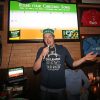Ingresa o regístrate acá para seguir este blog.
@wwaycorrigan
An old friend once told me that in the world of gambling on horses, it’s best to be in one of two camps: The first is to know a lot about it, where you make an informed, “backed-up-by-facts” decision on your selection. The other is knowing nothing or practically nothing about the subject.
Obviously enough, in a pursuit where there’s an amount of chance at play, neither position is a guarantee for success. Nonetheless, in the event of failure, the expert can go back to the drawing board, study harder to be better prepared for next time, assured (as much as one can in this particular game) that his/her superior know-how will help him/her come good.
For the very occasional backer of horses, the one who has no intentions of moving past the novice stage, the just-for-fun flutter that didn’t work, it’s not a problem. It’s a very minor part of such a person’s life.
Malign middle ground
It’s those in the middle who aren’t at expert level, and perhaps never will be, but yet have enough knowledge so as to sound as if they know what they’re talking about, to the point that they convince themselves they are right, this is the problem group.
People in this category, unlike the expert, aren’t savvy enough to realise where they’ve gone wrong and in contrast to the novice, they’ll continue throwing good money after bad.
“Sometimes they get too ballsy.”
We can easily apply this three-level concept to the world of language learning. In fact, it could be said it’s a great fit for it.
The experts, generally speaking, are the natives or the non-natives who have acquired an almost-native level. Of course, language is much more than just knowing all the mechanics of it, it’s a culture.
It’s one thing to know a language that you weren’t brought up on very well (and many non-natives who get to this level will understand the rules of the language better than most natives); it’s quite another to speak it so you seamlessly fit in with the native-speaking group in question.
Even among speakers of the same language, this can be challenging. For example, look at Chilean Spanish versus Colombian Spanish or Indian English versus Irish English.
On the opposite side, we have the novices, the beginners. In the same way with the horse racing example, if the expert tells beginners to go for X, it’s highly unlikely they’ll question it. They’ll bow to the ‘pro’s’ better judgement. Most of the time they’d be right to do so. Most of the time.
“Google translate trumps the native speaker.”
Then there are the intermediate-level learners. They won’t always take what the expert tells them as gospel. On occasions, they might be right to do so; their doubts prove well-founded. Nobody gets it right all the time.
However, sometimes they get a little too ballsy, they think they know best, to heck with the experts. This, more often than not, leads to silly mistakes.
Now in the classroom sphere, that’s OK. Live and learn — one is in the classroom to learn, after all.
In the professional world, it plays out a little differently.
All-encompassing experts
Take the case of a Colombian company (it may be its national airline), dominated, naturally enough, by Spanish-speaking folk. From a marketing perspective, it would appear that those calling the shots have an OK level of English, as many high-up people in such big companies do. Perhaps like my Spanish, fine but far from perfect.
As an airline that flies around the world, it not only advertises in Spanish but in English as well, with this advertising being an outsourced job (the vast majority of its advertising is). The final say on what goes public, though, and rightly so really, comes from management.
This is when know-it-all intermediate-level English speakers wielding power are dangerous. They want it their way, in their English (well, with the help of a poor translation from Google Translate).
Fair enough, changing an adjective here or a turn of phrase there isn’t a big deal. Yet, when it’s grammatically incorrect or confusingly written, and not in a smart way (think of Apple’s “think different”), then it’s just wrong.
But hey, they know best. “Thems are the experts.”
The thing is, being an expert in one field doesn’t make you an expert in all. Too much time spent on that high horse can damage the brain.
______________________________________
Facebook: Wrong Way Corrigan – The Blog & IQuiz “The Bogotá Pub Quiz”.


